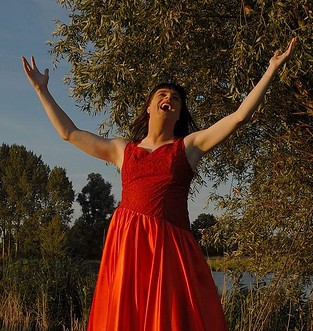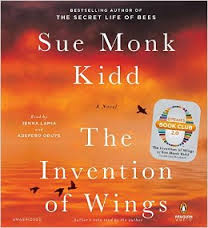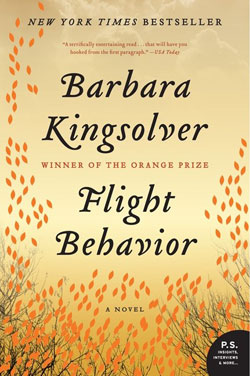Where’s My Voice?
One of the essential elements needed on your first page (and that continues through to the end of your novel) is your voice. This term is discussed in countless books, websites, and anywhere writing is taught. It seems like a nebulous thing. Just what is voice? How can you tell when an author “has it” and when she doesn’t? What should a voice sound like as it relates to the novel you are writing?
I don’t want to go into a lengthy thesis about voice, and there are so many schools of thought on this. So, I’ll just focus on a few points.
- One: the more you try to copy books that are out there and sound like authors you are trying to emulate, the more derivative you are going to sound. There’s something forced and phony that comes across when you try to write like someone else and not yourself. So part of what voice is is a measure of honesty and a courage to be yourself as you write. Okay, that sounds vague too, but over time, the more you write, the more you will find your voice coming out and asserting itself. I think the whole topic of voice is very subjective, and all I can tell you is what I really like in a novel and what works for me as I write (in terms of developing a voice for that book).
- Two: Think more about giving your characters voice rather than trying to come up with an author voice. If you are writing in first person, this is really essential and obvious. You are going to be in that one character’s head the entire novel, and so you want to spend time getting to know your character. How does she think, talk, respond to others? Where did she grow up and when? All the factors of a character’s background affect how she thinks and reacts to her world. And this comes out in voice as she internalizes and processes things that happen to her from one scene to the next. In third person, you can do pretty much the same by using a deep POV that feels a whole lot like first person POV.
Try Writing As If You Were a Dog
If you don’t really get how you can come up with a unique voice that fits your story, try writing some thoughts or create a little scene, but take the point of view of a dog. Garth Stein did this beautifully in a novel that’s one of my all-time favorites: The Art of Racing in the Rain. I loved Enzo and feel he is a very human character with a truly human voice even though he’s a dog. Maybe you can rewrite one of your scenes from the mind of a cat, having the cat tell what’s happening and remarking on how he feels about the way those humans are behaving around him. If you play with voice like this, it might help you realize that each character will have a personality that comes out in and by their voice. And that voice becomes the voice of your novel. If you have multiple POV characters, they should each have a different and unique voice. I’m not talking about the overall tone of the book that overlays all these “voices.” I’ll discuss that in a future post.
Voice is really about letting your characters loose. Let them emote and react and tell you how they feel about what’s going on. If you get out of the way and let them take center stage, I think you’ll find the voice will present itself. That’s been my experience.
This week, try writing your first scene in the point of view of some other character or animal. If you are writing third person, try first person for your protagonist. Or put the scene in a secondary character’s POV and hear how she talks as she sees the scene unfold. Share any thoughts or insights that come to you through this exercise.












Hola C.S. Lakin! I recently subscribed to ‘livewritethrive’ and find advice on voice very helpful. I too love Garth Stein’s Enzo in “Racing in the Rain,” and have passed the book on to others. A dog loving friend gave me that book and at first I wasn’t that attracted to reading it (I’m a cat person) but Enzo’s voice hooked me. Stein’s writing amazed me because although Enzo thinks like a person, you never forget that he is a dog. Your suggestion to try writing a scene in a secondary character’s POV suddenly struck me. I have a short story I’ve never been able to finish about an 11 year old boy’s encounter with a bear. I think as an exercise I need to write a scene from the bear’s POV.
Thank again,
Dorothy (in Mexico)
Nathan April 12, 2012 at 1:42 pm #
You may find the book Edgar Sawtelle, by Wroblewski a helpful study. It has a teen boy POV and a dog POV.
I just finished my WIP and went back to rewrite the start. My character found her voice and her purpose somewhere along the way and the beginning’s so much better now I’m seeing things through her eyes instead of just hearing them through her initial uncertainty.
I agree with your views.
I would like to add that bringing voices to different characters in a novel call for an extra bit of imagination on the part of an author.
If I say that such capability cannot be acquired but can only be cultivated if there is something extra in that individual, will you endorse?
Thanks for sharing your thoughts.
I love the idea of writing from the POV of a dog or cat. What an excellent way to explain voice. So many writing terms can be confusing. Love the insights you share on this blog.
Sorry about posting the above in the wrong spot.
Great article, as always.
I was wondering what you can tell us about your process for choosing a pov or multiple povs for your books. I’ve rewritten books, changing the pov character to find the dynamic shift tremendously. Even if I go back to the original pov, the book is improved by what I learn about my own story.
Nathan, that’s a great question, as some of my novels have more than a dozen POV characters. I always start with my theme, premise, and the point or heart of my story. Once I develop my main characters and come up with all or most of my scenes, I think about who is the best person to show the scene through their eyes. Sometimes it’s obvious, as when you have a scene with a character alone by himself. But other times there are many characters, and so I consider whose insights and observations will tell the scene the best, based on what the high moment for the scene is and what is to be revealed or noticed. Also with multiple POVs, you have to balance them with the bulk of scenes in your protagonist’s POV, since it is her or his story overall, and then shift around to the other POVs as needed, but in a balanced way. Two of my novels are first person because I realized I wanted those characters to tell the story solely from their POV and those books really couldn’t be told any other way.
Personally, I am just more comfortable writing a shifting third-person POV story. I find first person very difficult and restricting, although I had a lot of fun with it (especially in Time Sniffers, giving my teen a great sense of wry humor). But I love the freedom and creative potential inherent in the shifting third-person POV and my favorite authors have inspired me by the way they excel in it (like Elizabeth George, Anita Shreve, and Jodi Picoult).
You have made some excellent points in this blog and I will pass it on to writers in my weekly critique group as well as the creative writing classes I teach. It is important to ‘nail’ the voice of your characters. Your own narrator’s voice is important too but that will sometimes depend on the style and genre of what you are writing. My novel “Shadow of the Lion” about the fall of Alexander the Great’s dynasty has a rather ‘Homeric’ cadence to it whereas my w.i.p. Celtic Tale “Dragons in the Sky” (first person) has a definite Welsh lilt to the narrator’s voice.
Wow. Lots to consider about “voice.” I have the luxury of usually writing in my own voice or in that of people I have interviewed and gotten to know. I consider using voice in writing to be a lot like acting, even as an amateur. We must internalize the “lines,” script, so well that it sounds like natural speech and a real character. Self conscious writing is stilted, but when we are in the right “voice,” it is smooth and credible. So if I were to try fiction, I would probably aim to crawl into the skins of each of my characters and first feel, then speak just like them, forgetting entirely about myself.
Love it! Especially the writing like a dog bit 🙂
Something people don’t know about Writerly Goodness, she’s a dog! And so’s the Learning Mutt.
Seriously though, voice is something you cultivate, there is no way to force it. You’ll seem contrived if you try.
Just write, and write, and write some more. It’ll come along at some unexpected moment, just like the muse, and once you have your voice, though it may change and evolve, it’ll never leave you! Good luck to everyone out there trying to find their voice!
Great post, Susanne. I really enjoy your post here 🙂
Would the same apply to an author writing someone else’s life story for them? Is the author writing in their voice or in the voice of the subject?
As a reader, if I’m reading a biography or memoir, I prefer it to sound like the person it’s about. However, biographers often have their own writing style and it’s their voice telling a story about someone else. It’s a choice you’d have to make–whether you want it to sound like you telling the story or like the person whose story it is about. Great question!
Thank you. This was really helpful!
Hi Ms. Lakin – I came across your recent guest post on StoryFix, 3 Questions You Must Ask Your Characters (http://tinyurl.com/cqs5bog), and really enjoyed your perspective and method for building deep characters. I hate to ask something out of context on your blog, but would love your insight on a question I had in regards to that guest post.
When you’re answering those 3 questions for your POV characters, are you providing answers to those questions based on a specific “moment in time”? For instance, are you answering those questions based on their past life so far up to the beginning of the story? Or are you trying to provide answers that encompass all that is about to unfold in the story to come? Or after the initial conflict is revealed?
I can see an answer to a question like “What is your core need?” or “What is your greatest fear?” changing dramatically over the course of a novel as events occur.
Perhaps what I’m struggling with most is understanding those dire needs and great fears that the character is struggling with in the context of the pre-story timeline. They may be there, but it seems to me that core need and great fear won’t really spring into action and affect the character until the conflict of the story is unearthed.
Thanks so much for your time and thoughts!
Matt, thanks, and those are great questions. Mainly those questions are asked at the moment your novel starts, at the start of the story you are telling. If you ask a character–what lie do you believe based on what hurt you’ve suffered?, that is how they see themselves at that moment. What you hope to do by the end of the book is have them grow and learn and see this truth through what they go through in the story so that they will then stop believing the lie and recover from the hurt. That’s their “character arc.” If you take a look at my post I wrote a few weeks back on The True Essence of Character (March 28), it goes into a clear explanation of that arc. When you look at great books or movies, that character starts off in his persona–the person he’s come to believe he is based on all those issues, but then by the end, he’s come a bit (or wholly) into his essence–the true person he is inside but was held captive by his past hurts and lies.
Great, that makes a lot of sense and I appreciate your response! I’m looking forward to diving into your blog archives to learn more.
Very good article. I’ve pointed the members of FaithWriters in this direction.
I know I’m late in reading this post, nevertheless it’s excellent advice. So glad I subcribed. The novel I’m working on now, includes so much of what you’ve offered here…Looking forward to more…
Sincerely, Racheal
Thanks, Racheal, you can always come late to this party! the posts stay up forever. Glad you like the blog and hope the instruction helps! Feel free to subscribe so it can come to your email.
I wrote a story from a dog’s POV once… http://figment.com/books/328329-Woof
Hi there,really appreciating your posts. Going to try this exercise, see how it goes. If it brings me to writer’s voice, awesome. If not it sounds like fun and I will have a few laughs!
Thanks again.